Benin. Part IMap
May Contraband gasoline is brought here from neighboring Nigeria and sold on the side of the road for a third less than what it costs at the gas station. The big-bellied bottles hold 20 liters. The wine bottles are used to fuel up motorcycles. 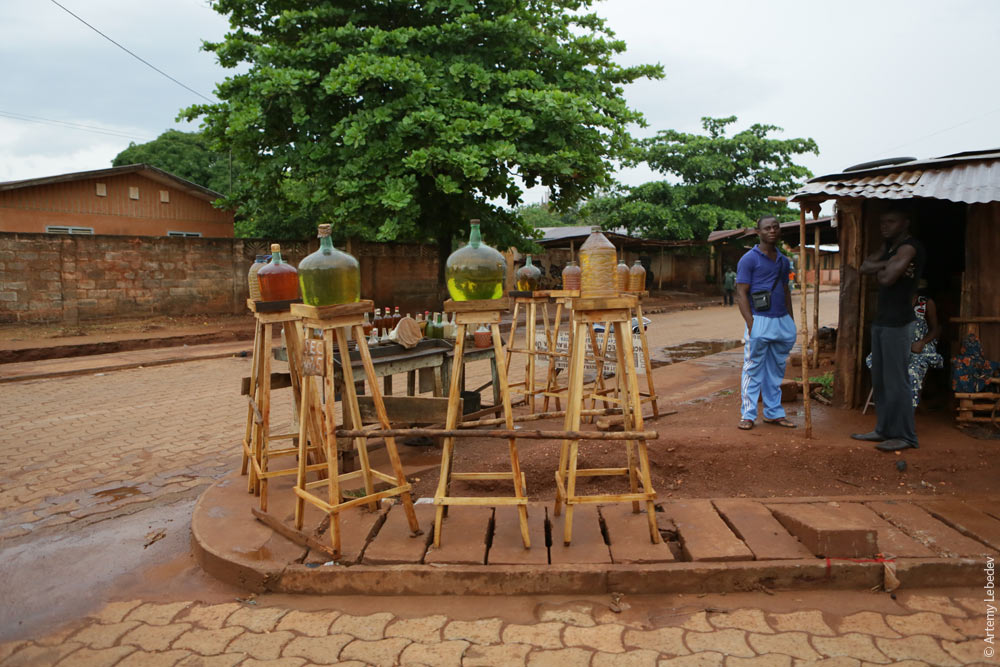 The few rare gas stations have pumps of the shape you see on signs in Italy. 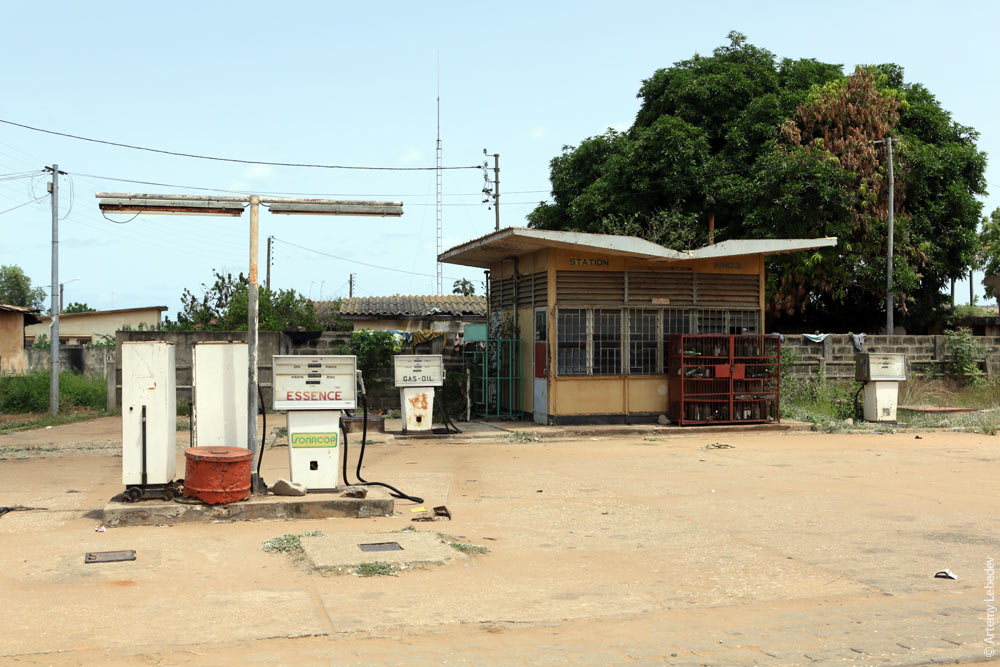 There’s an incredible number of hair and nail salons in Benin. You’ll find one in every village. And they’re always advertised with illustrations on circles welded to a pole. 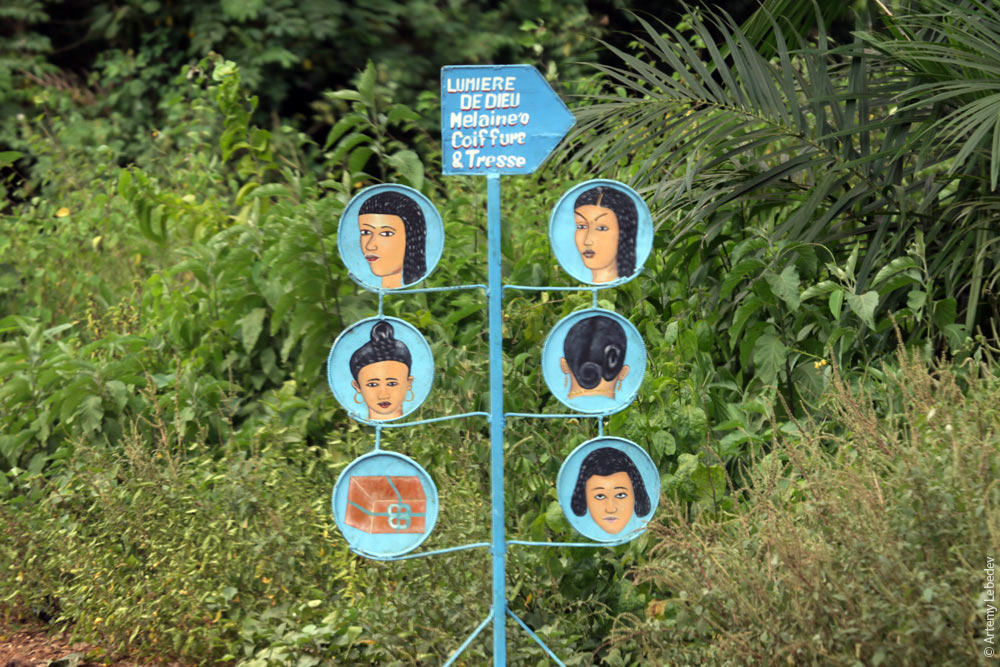 In rare instances, the illustrations are on rectangular sign boards. 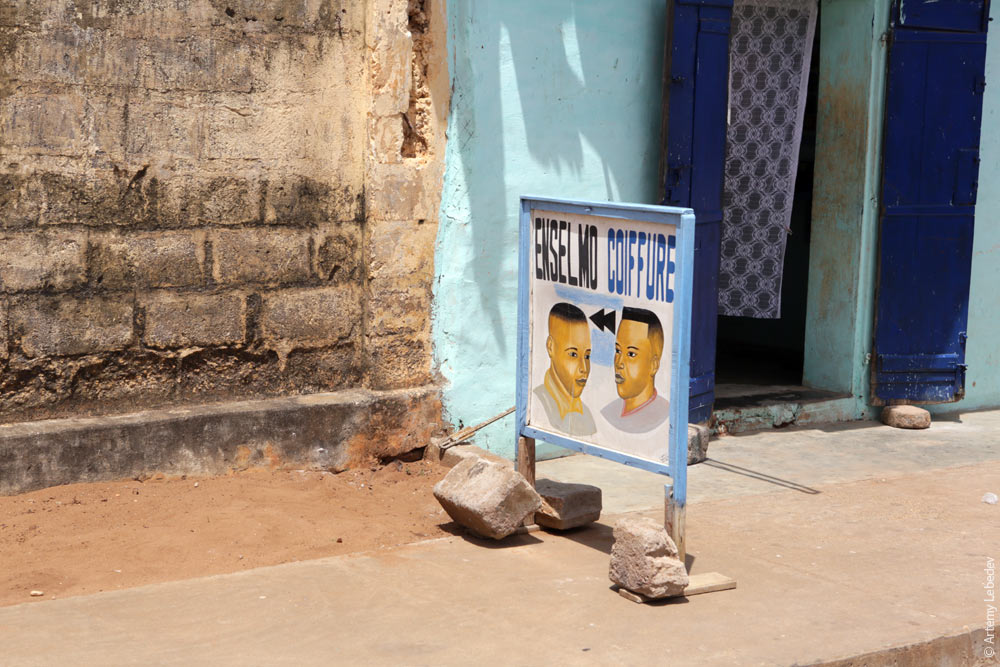 The second most common type of establishment is fish and meat salons. 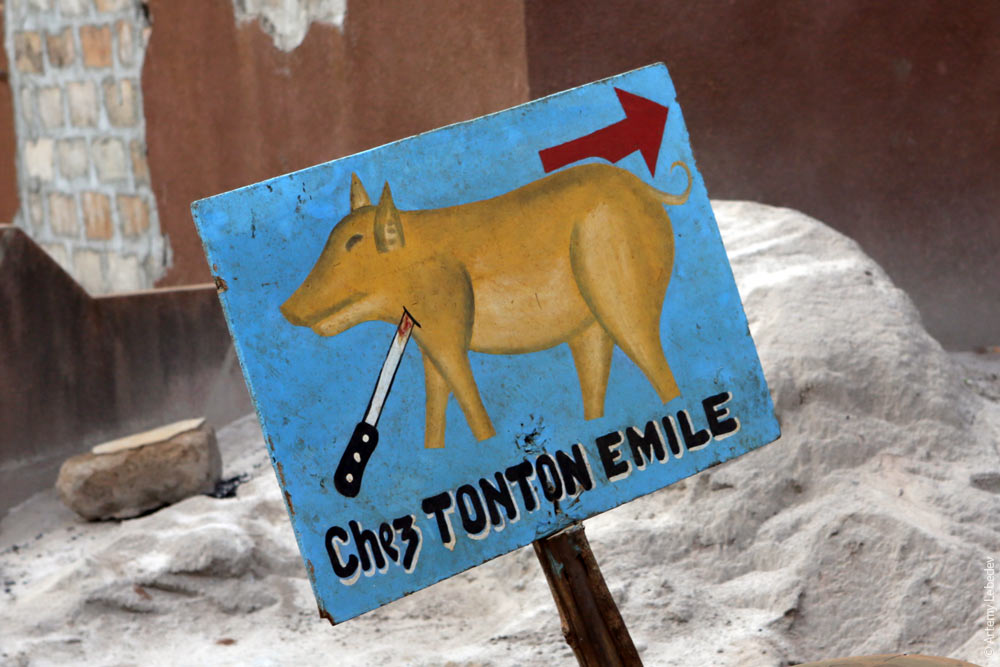 In third place are photo and video salons. 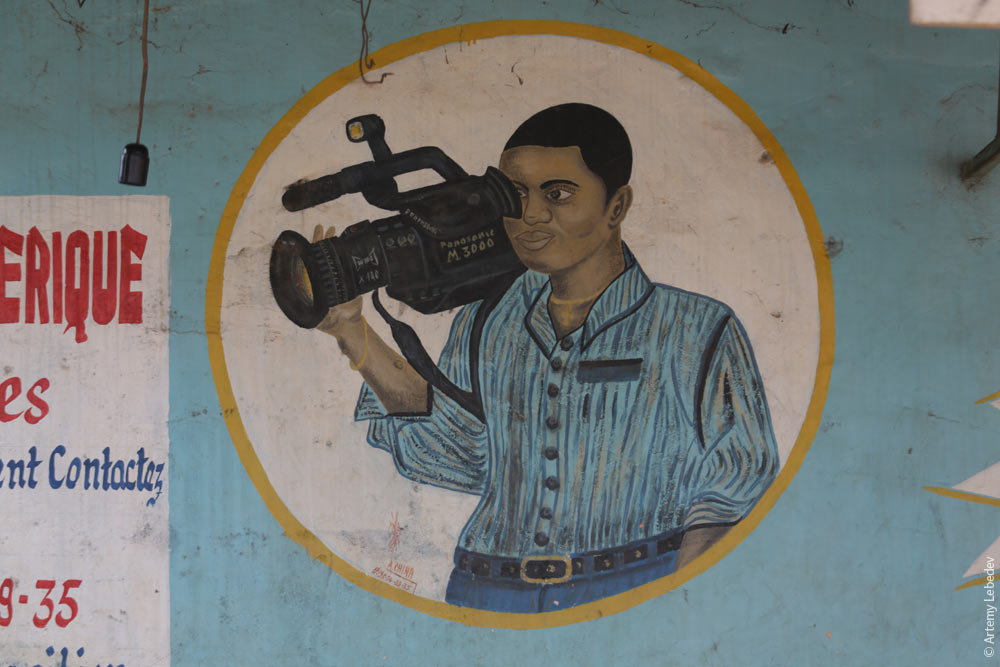 A toll road. 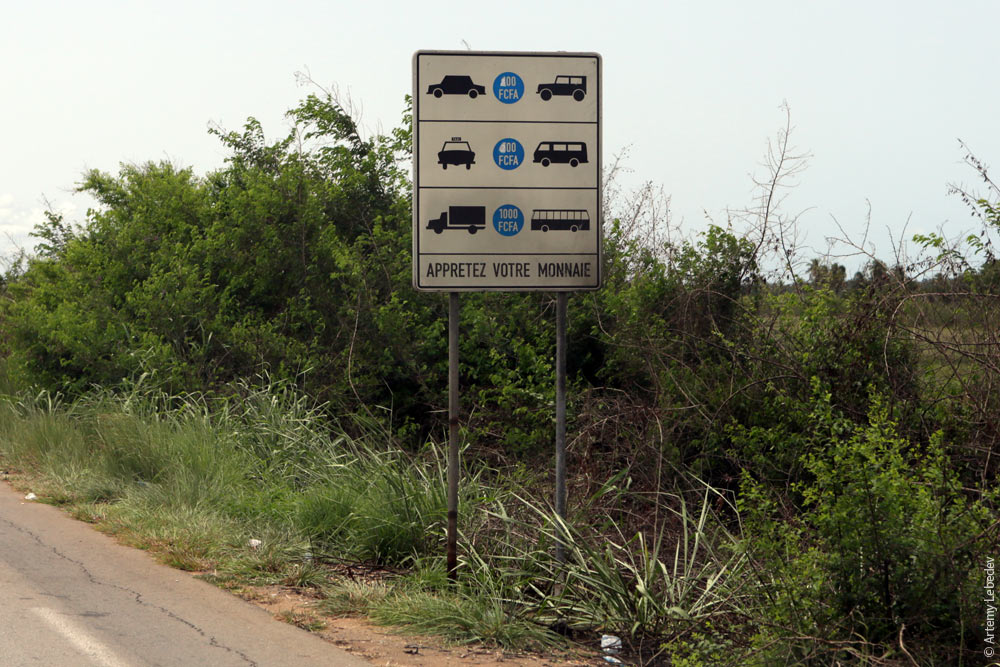 A deluxe category room, with no window. 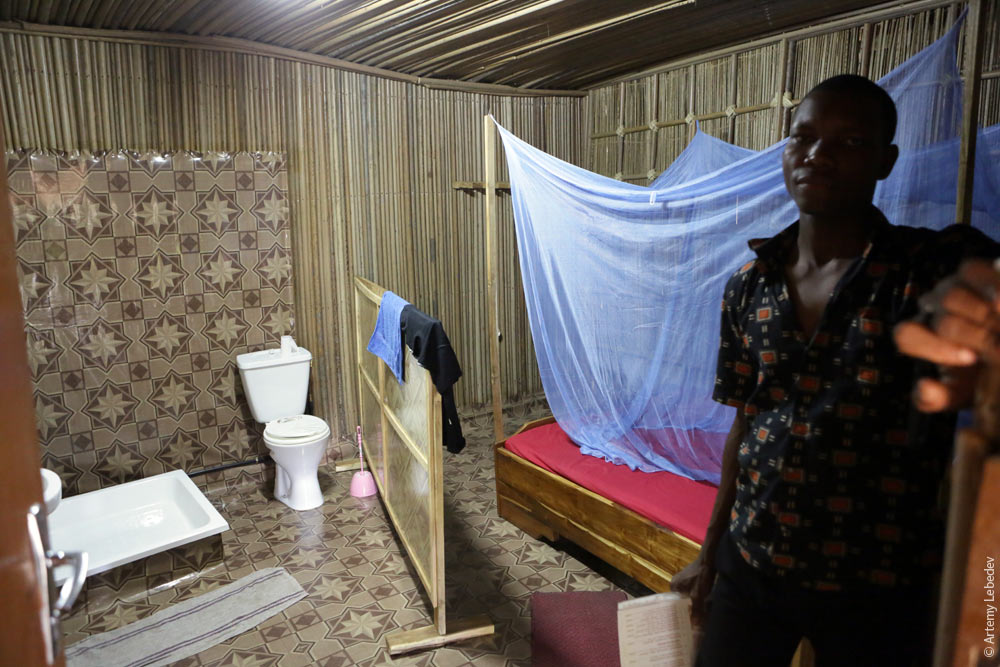 There are two types of phone booths here. They’re found all over the country, and no one ever uses them. 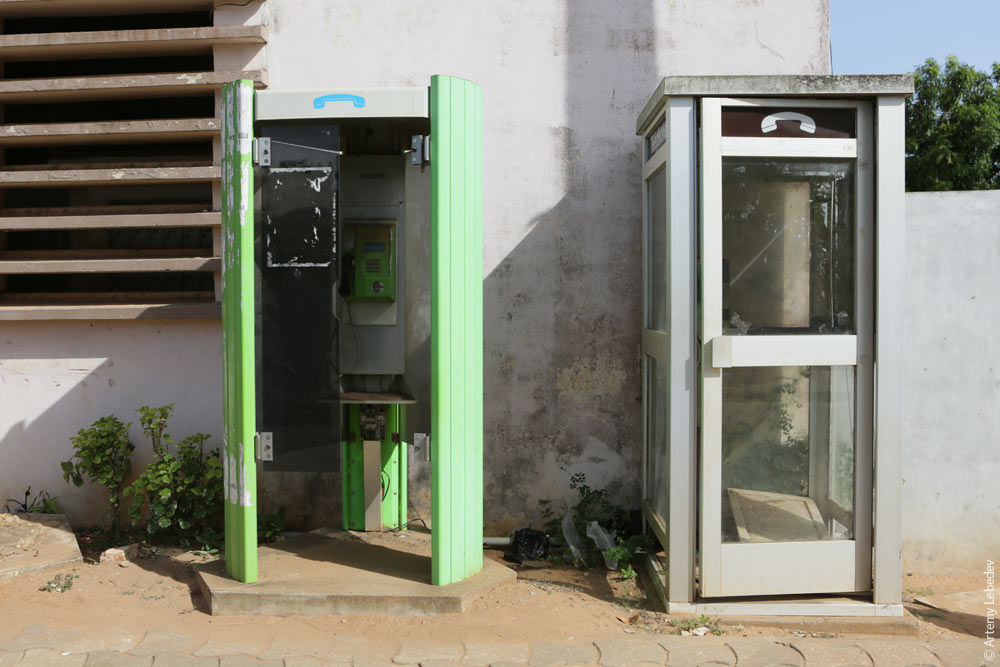 Mostly, you see the green model. 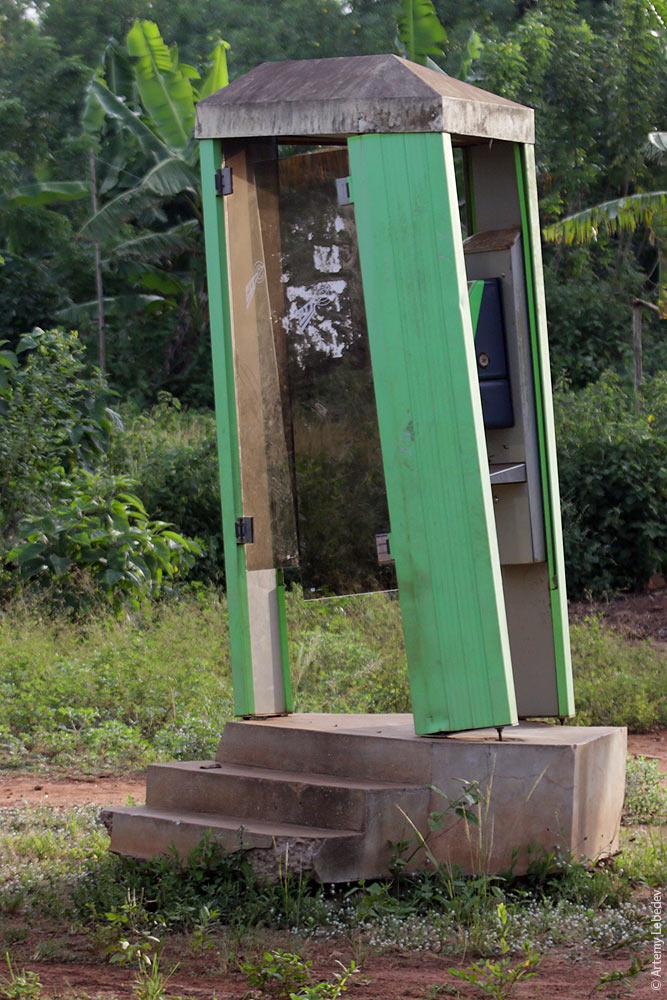 The toilets with lids look like keyholes. They’re made of concrete. The lids are to discourage flies. 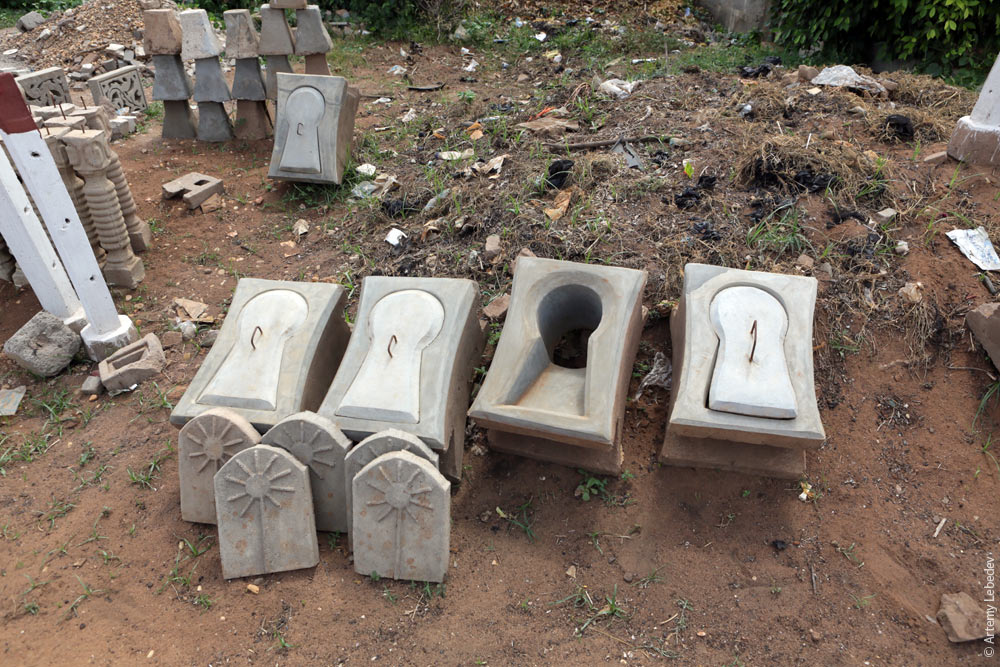 Concrete fences with see-through capabilities are common in Benin. 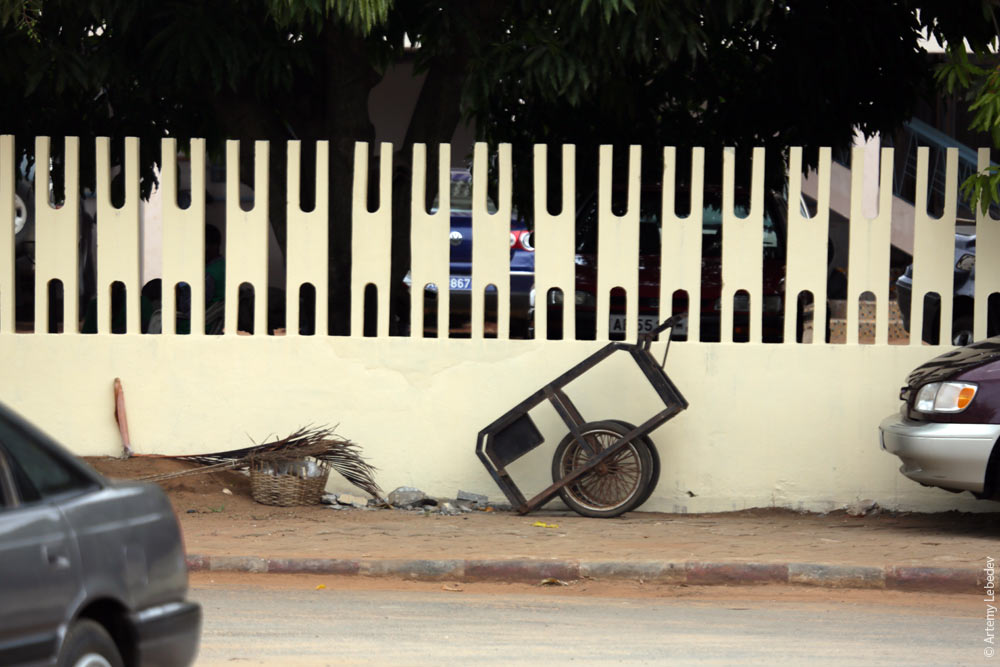 Half the country rides around on motorcycles. Tires wrapped with colored tape are a common way to advertise tire stores and auto repair shops. 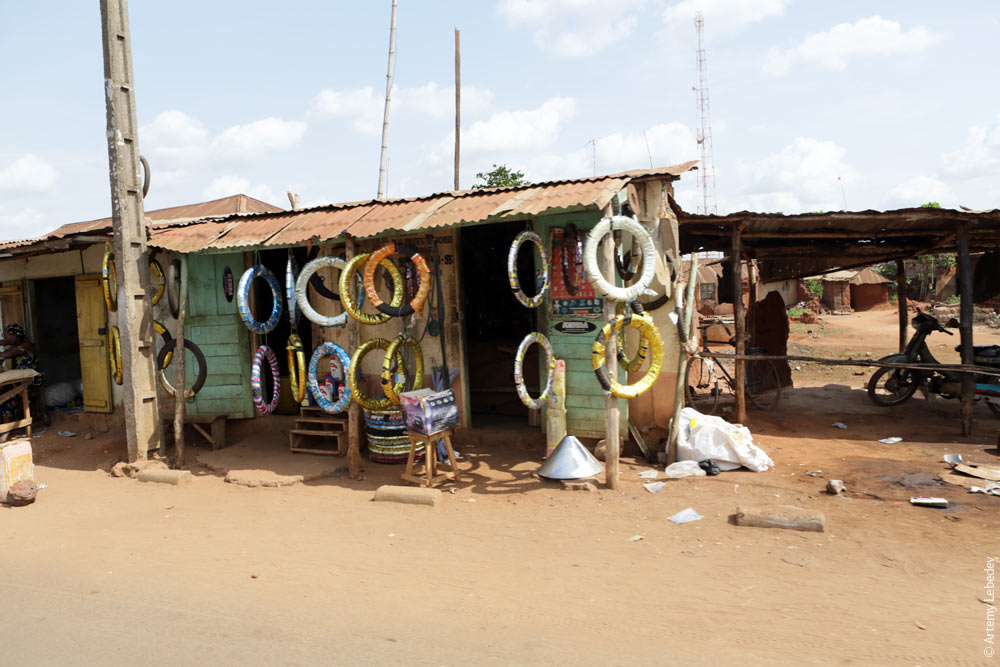 Motorcycle taxis are widely used here. Every mototaxi driver has a number on his back, but the motorcycles themselves aren’t marked in any way. 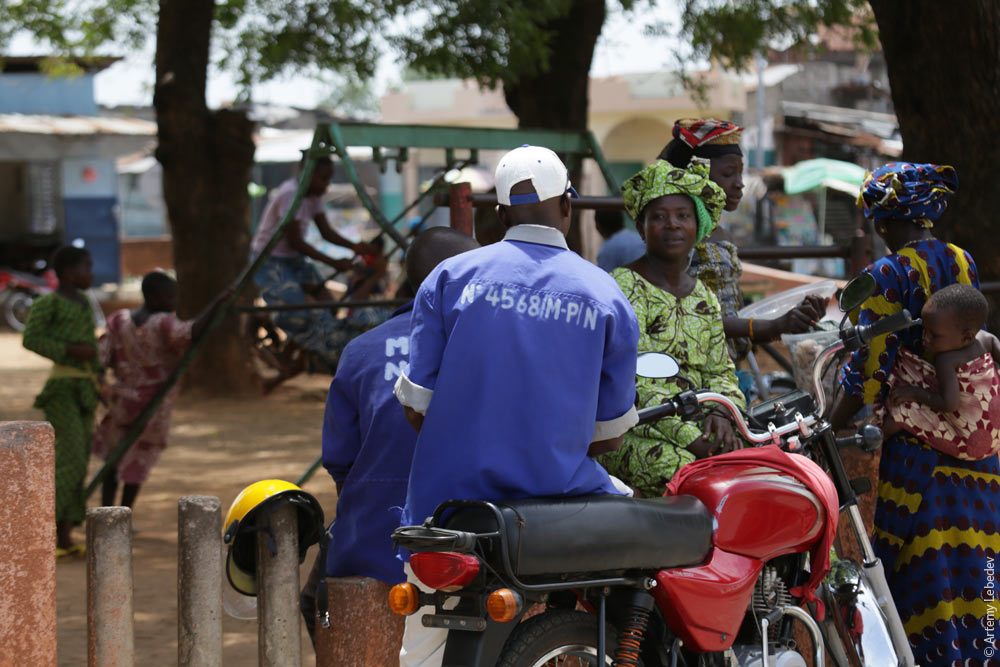 License plates have a symbol in the shape of the country on them. 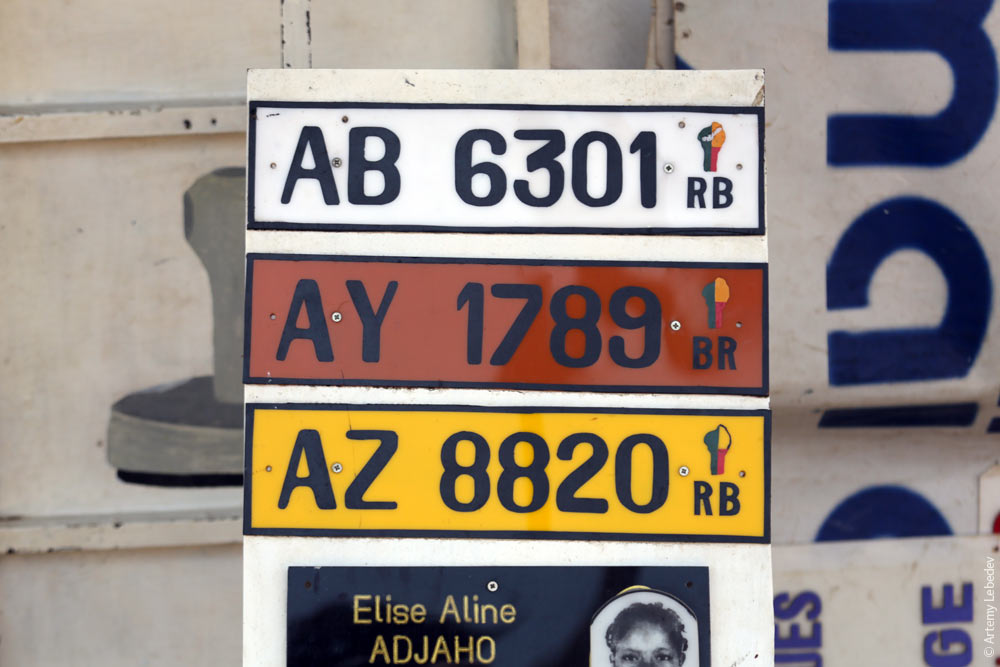 The fire extinguisher has been well-secured from theft. 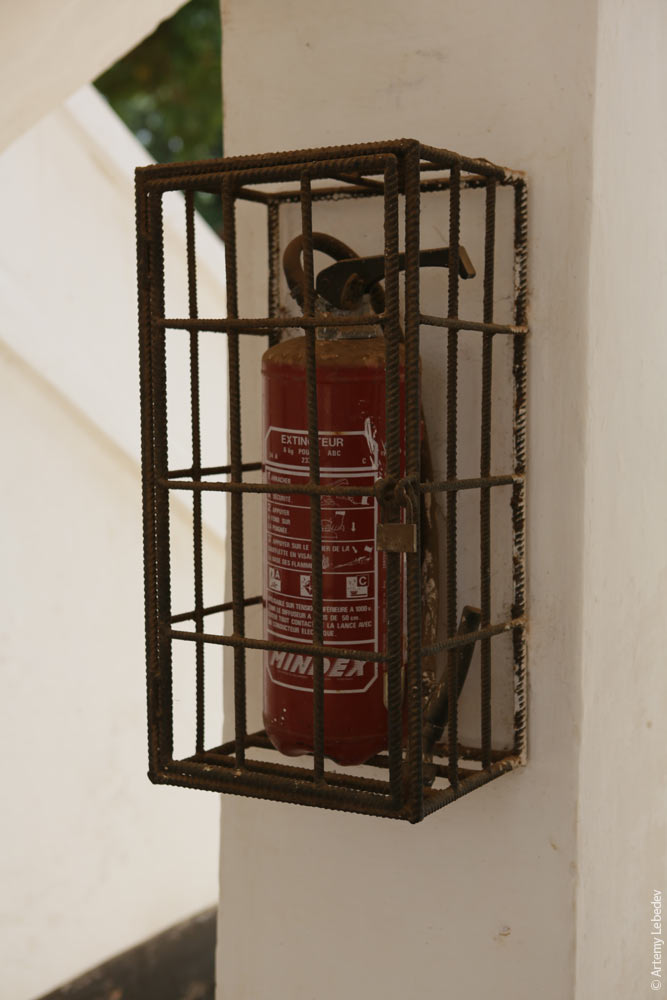 The main symbol in the country is a vessel for sifting flour with lots of little holes. According to the official explanation, if every person in the village helps to plug the holes with their fingers, no water will pour out of the vessel. But if just one person fails to lend a finger, the combined efforts of everyone else will be in vain. Obviously, no one has ever actually tried to plug all the holes in these vessels. 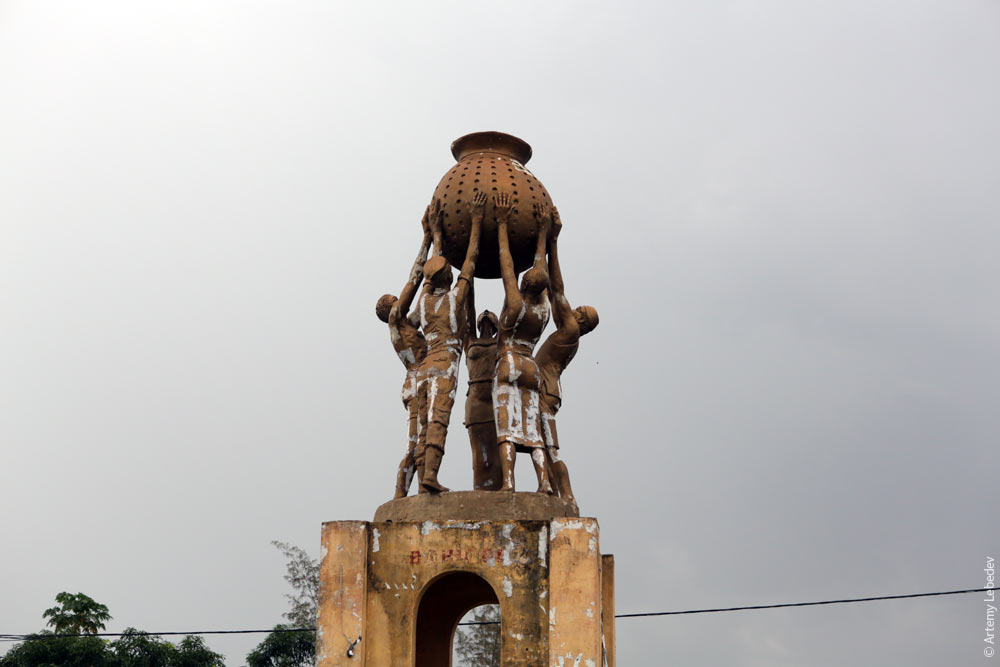 OuidahMapAn unexpected traffic light design with the name of the city on the visor. 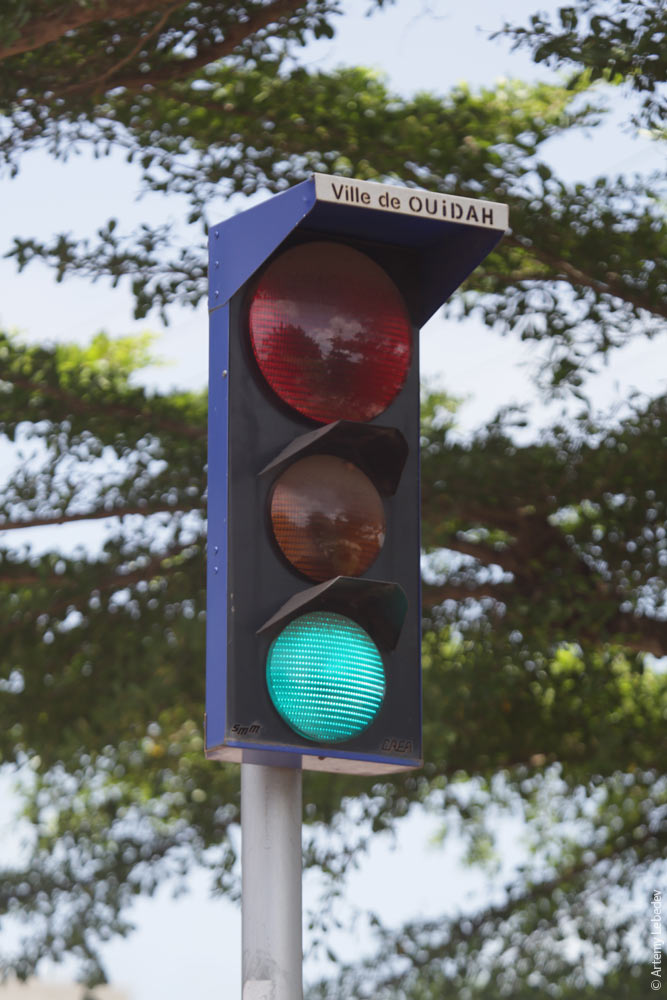 A municipal trash can. 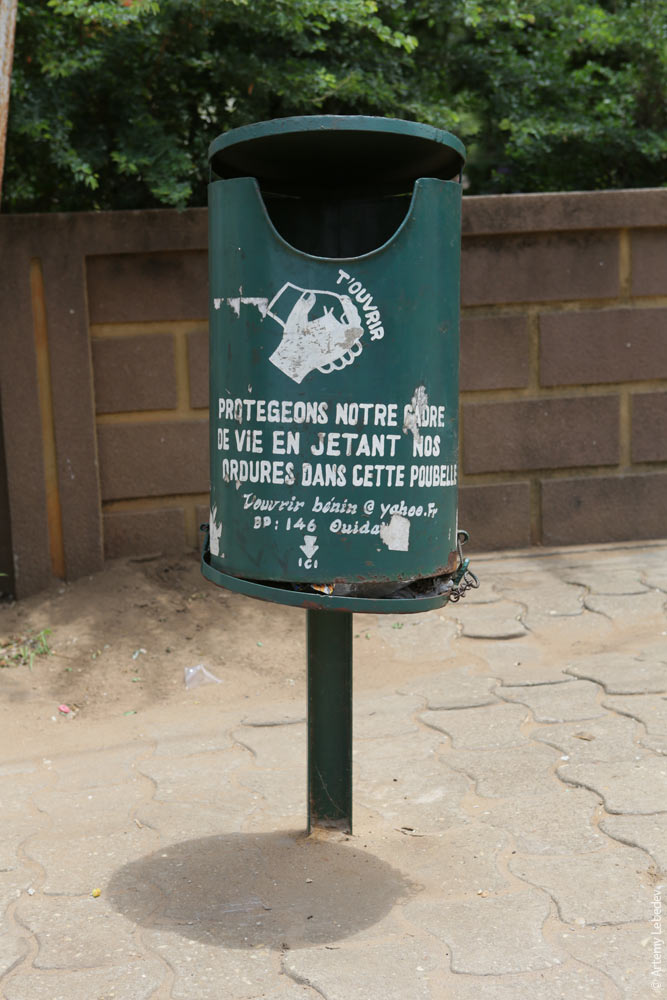 Traces of a colonial past. 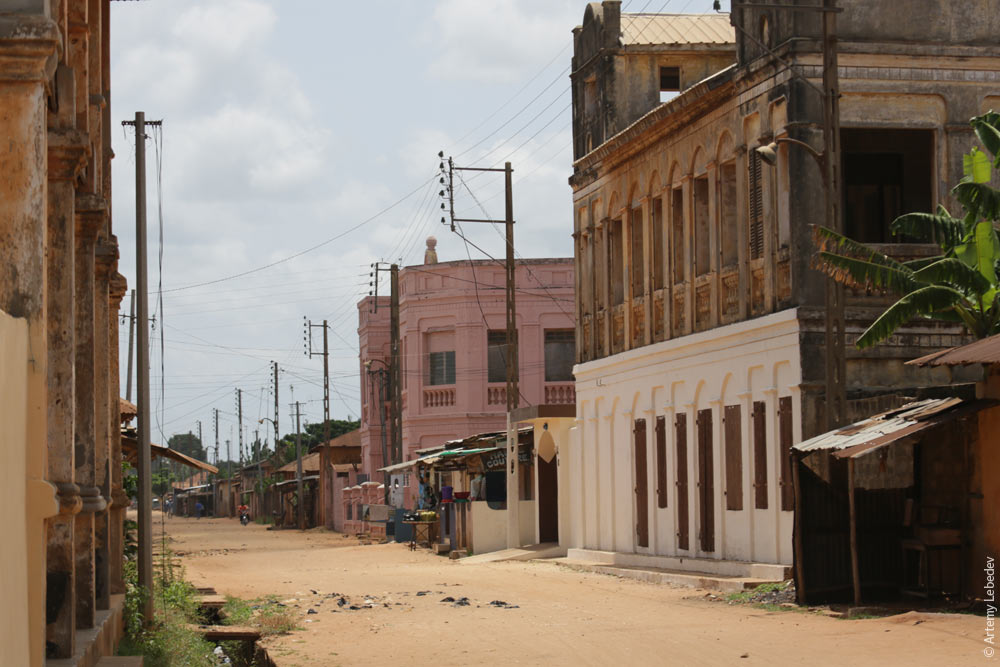 A post box inherited from the French. 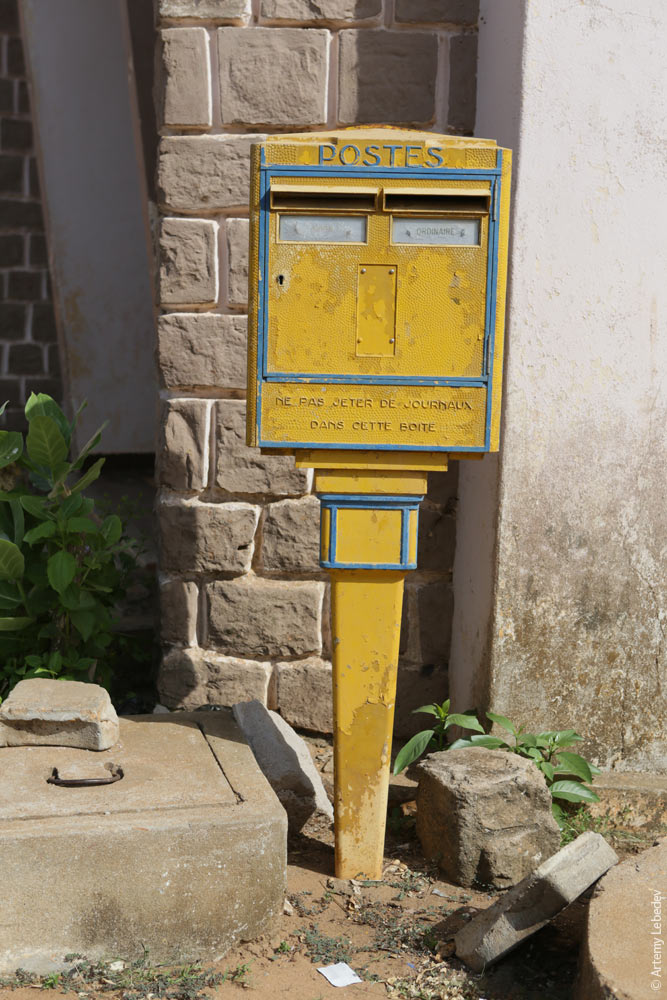 The name of the street is no longer visible on the old sign. 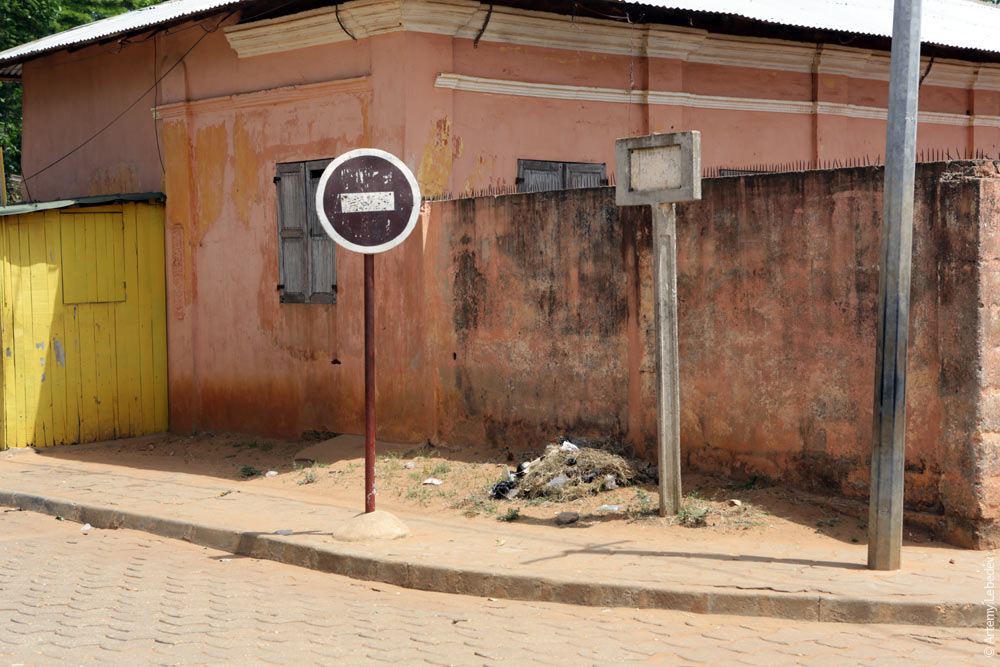 The city of Ouidah is the birthplace of voodoo. 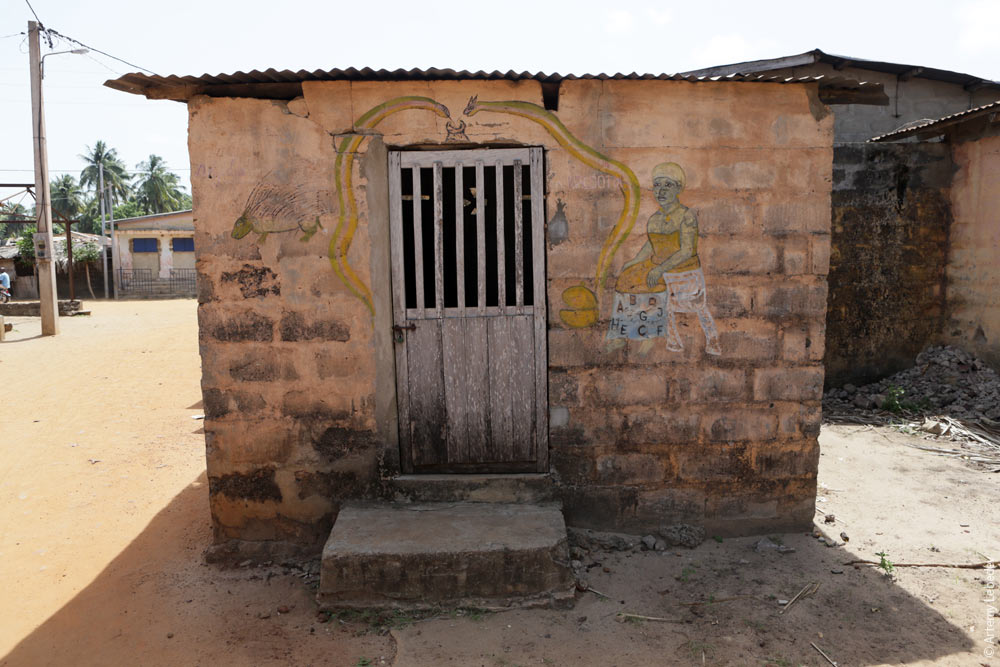 Pythons are very important in voodoo. 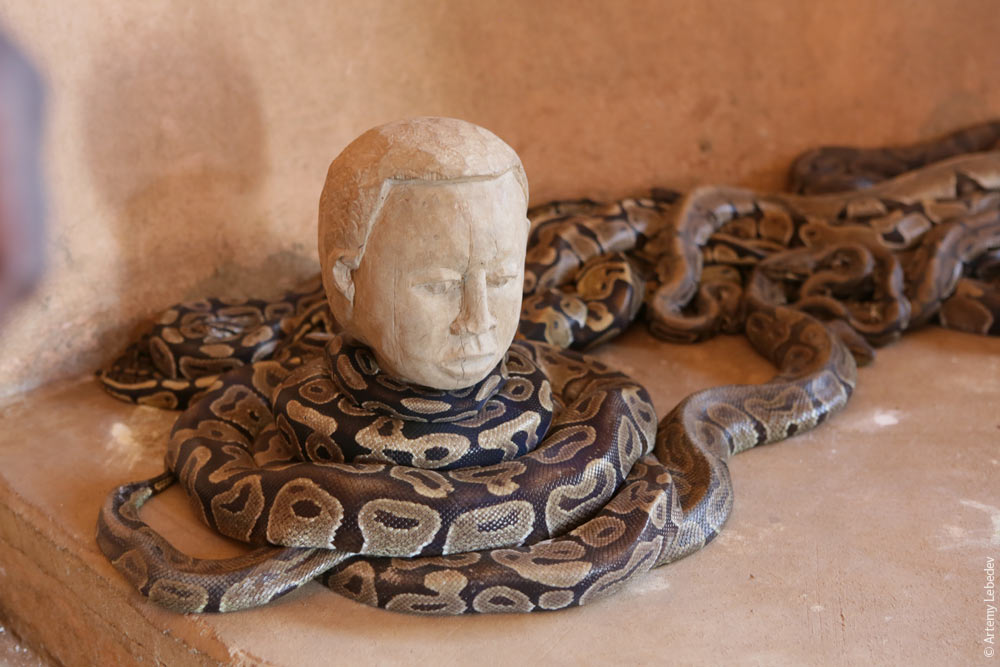 What we see before us is not a cesspit sprinkled with parmesan, as a hasty reader might assume. What we see before us is a special place at a temple to which anyone who wants to work with iron (whether as a smith or doing mechanical work) brings something made of iron (a pipe, a gear, etc.) and waits to hear the priest’s verdict. The priest drips various foodstuffs onto the pile of iron scraps and eventually receives an answer about whether or not the seeker can work with iron. 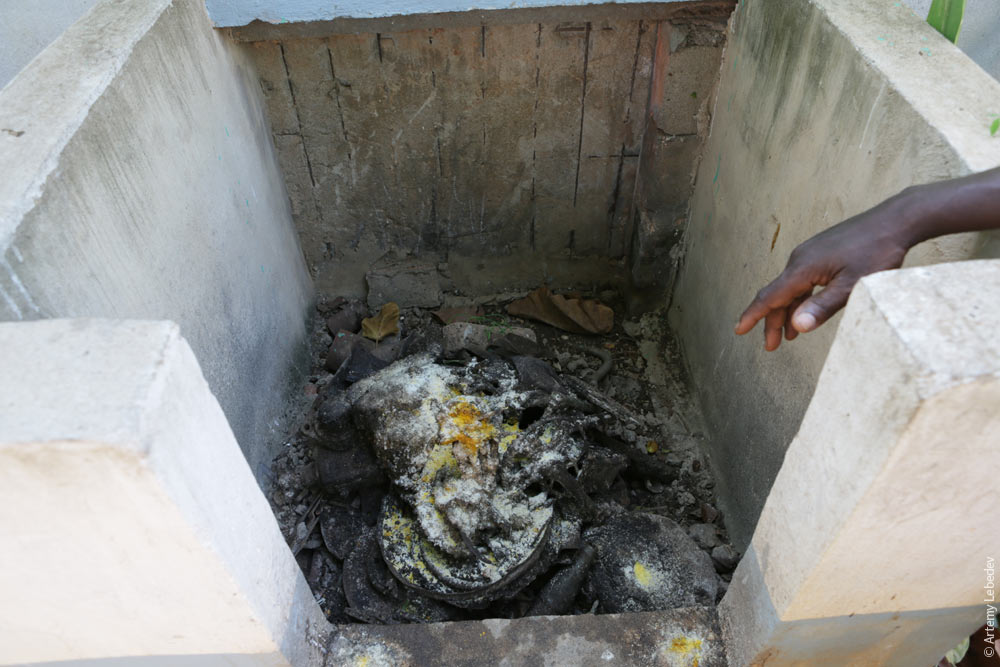 Not far from the city is a village of salt-workers. Only the women are engaged in salt production, the men fish in the meantime. 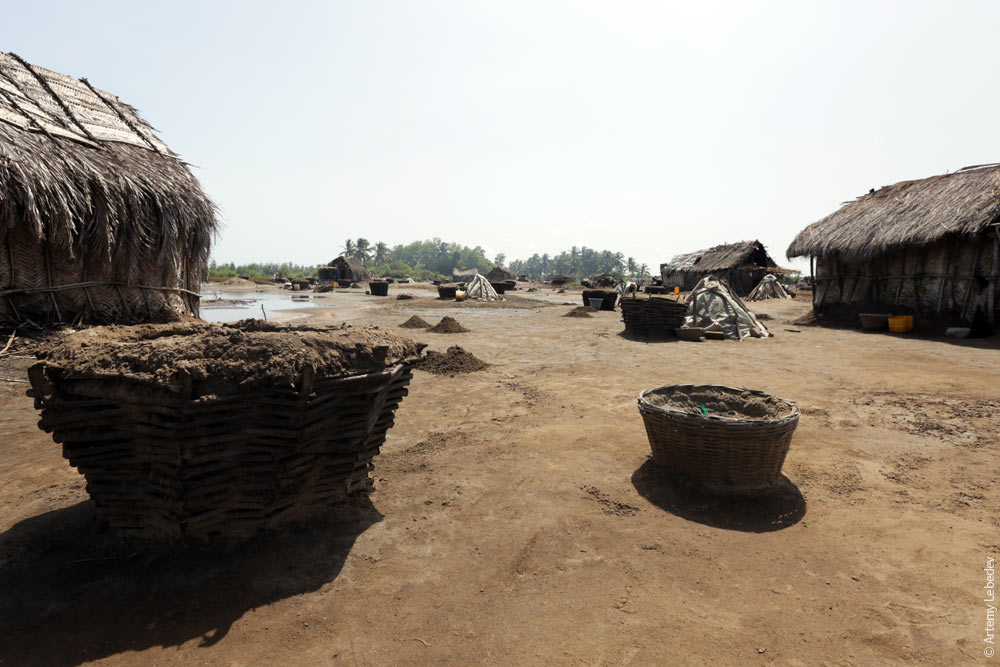 I’ve seen various methods of salt production before (from underground mines in Soledar to open fields in Panama), but I haven’t seen anything like this yet—here, salt is extracted from the soil. Little heaps of soil are dug up. 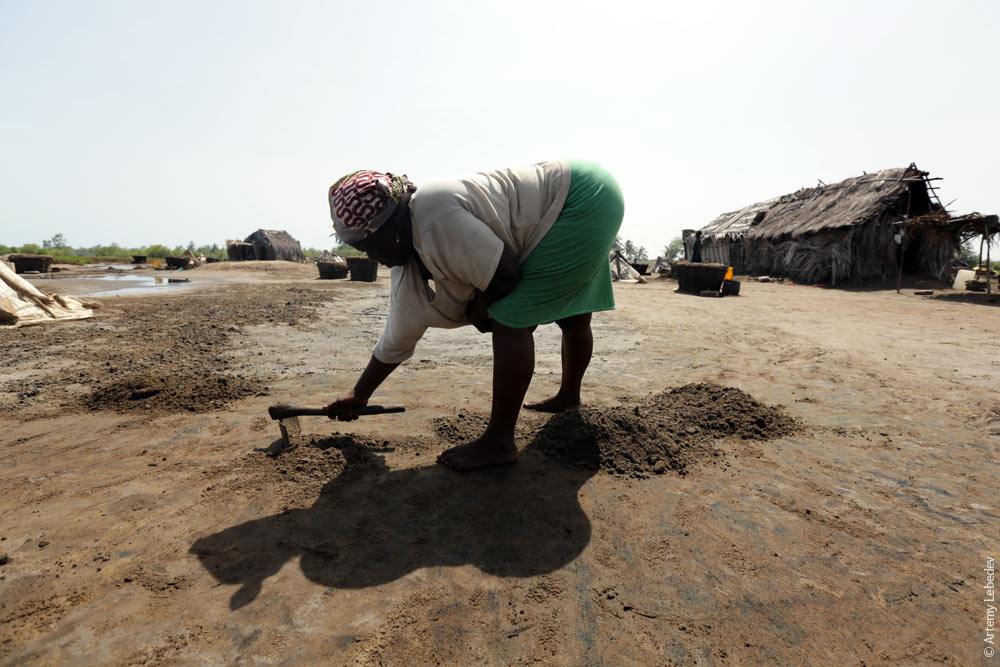 Then the soil is placed in a special reservoir, and water is run through it several times. The water, having passed through the salty soil, becomes salty and is collected into a separate bowl. 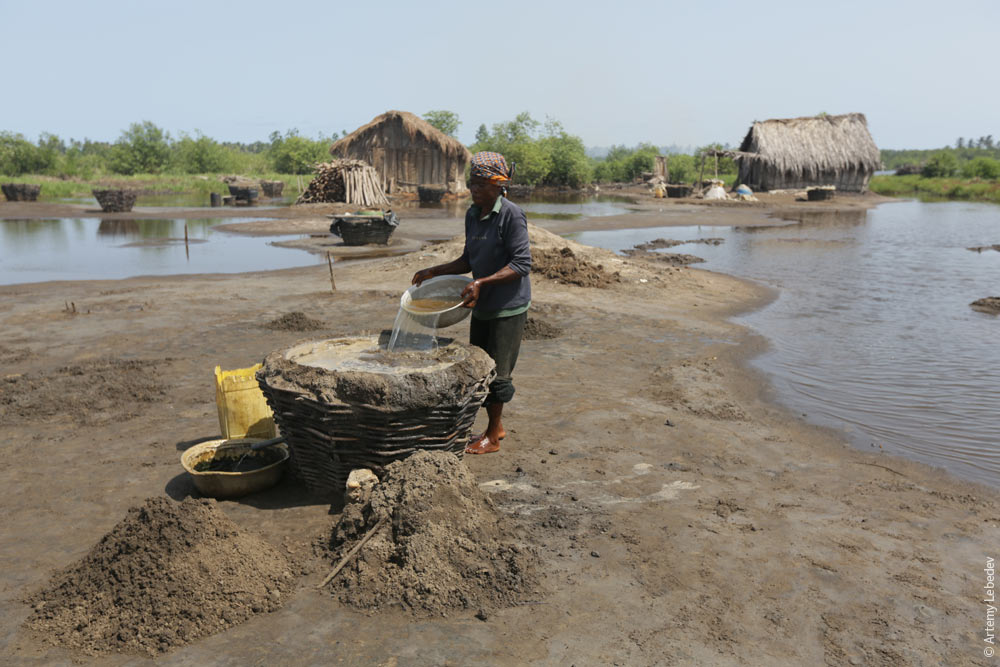 Then the salt water is boiled down over 24 hours or so. 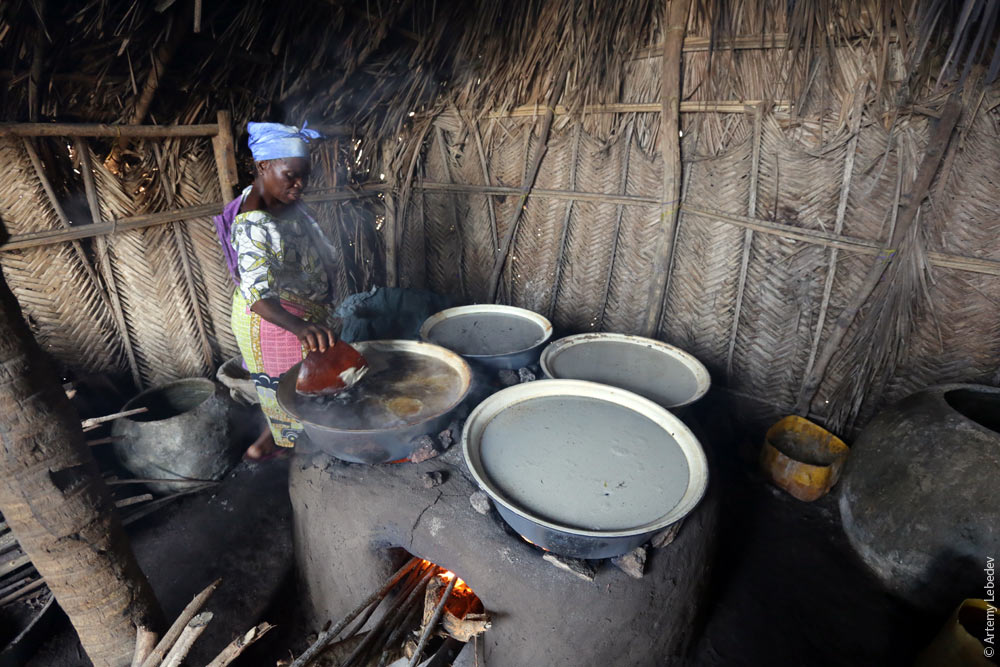 And voilà—salt. It’s sold for about a dollar a kilo here. What’s interesting is that many prefer it to sea or rock salt. 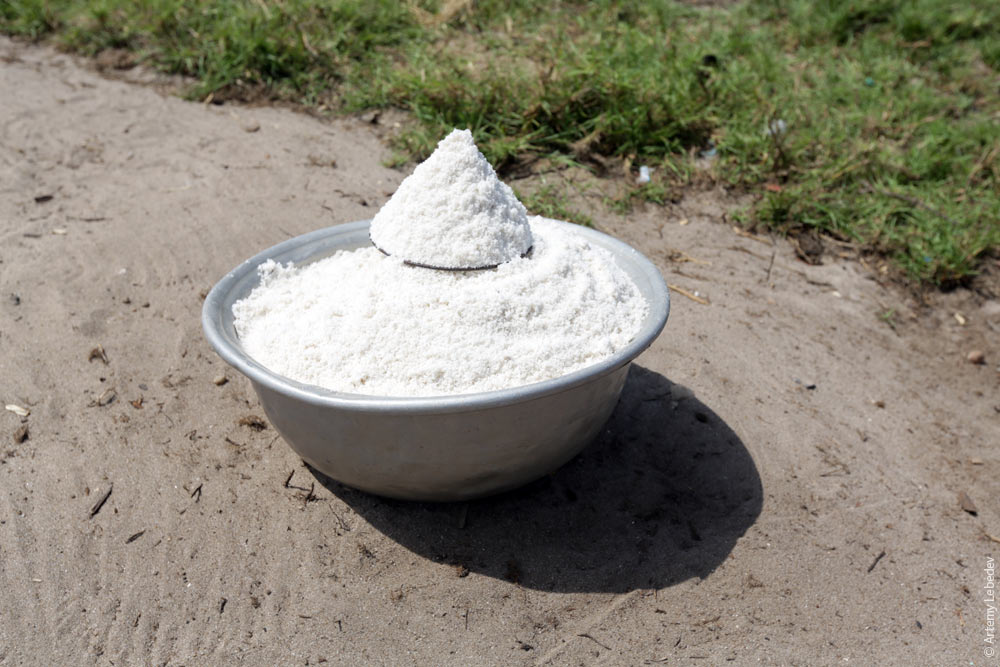 |